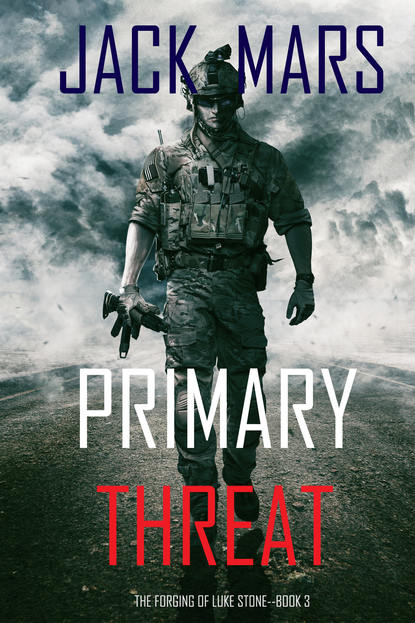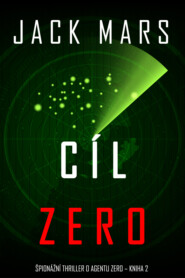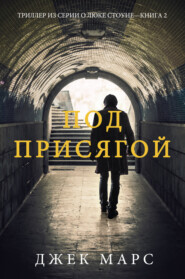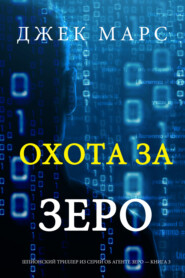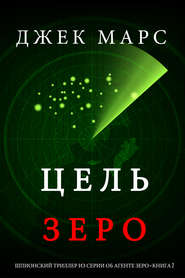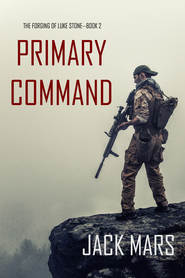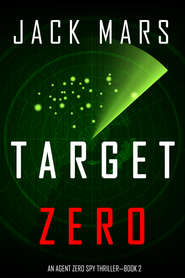По всем вопросам обращайтесь на: info@litportal.ru
(©) 2003-2024.
✖
Primary Threat
Автор
Год написания книги
2020
Настройки чтения
Размер шрифта
Высота строк
Поля
Big Dog pulled the gun down to get a wider view of the field. The scene was chaos. Men were running everywhere. Men were shooting. Men were falling dead.
Too late, he saw two men in black, both taking a knee. They pointed guns up at him. From this distance, he couldn’t tell what the men were carrying. They were small submachine guns, compact, Uzis maybe, or MP5s.
Less than a second passed.
Big Dog pushed away from the iron railing just as the first spray of bullets hit. They went right through him and he felt himself doing a spastic, jittering dance. Then the pain came, as if on time delay.
His feet slipped backward, out from under him, and he fell forward onto the railing. He thought he might vomit over the side.
But his height, and his momentum, carried his whole body forward. There was an awkward moment when it seemed he was perched on the rail, all the weight on his stomach. Then he was falling. He scrabbled madly for the iron slats behind him, but it was no use.
A second or two passed. Then IMPACT.
Time stopped. He drifted. When he opened his eyes again, it seemed he was gazing up at a dark sky. The last of the bleak day had passed, and the cold stars in their millions were coming out, playing hide and seek behind skittering clouds. He blinked and it turned to daylight again.
He knew what had happened. He had fallen to the iron deck two stories below the doghouse level. He had hit hard. His whole body must be broken. His skull must be cracked.
Also, when the memory came, it was like the bullets were piercing him again. His body jerked convulsively. He had been shot with machine guns.
There was no telling how much time had passed. It could have been minutes. It could have been hours. He tried to move. It hurt to do anything. That was a good sign—he could still feel. There was a lot of dark liquid around him on the deck—his blood. He wheezed as he breathed, like a hydraulic lift going bad, fluid bubbling from his mouth.
Somewhere, not far, gunshots were still ringing out. Men were shouting. Men were screaming in pain, or in terror.
Shadows moved across him.
Two men stood there, looking down. They both wore heavy black jackets with white patches. The image on the patches seemed to be an eagle or another bird of prey. They wore green camouflage pants, like an army would wear on land, someplace where the world wasn’t covered in white. And they wore heavy black boots.
The men’s faces were covered in black balaclavas. Only their eyes showed. Their eyes were hard, without sympathy.
What did these guys think they were doing?
“Who…?” Big Dog said.
It was hard to speak. He was dying. He knew that. But he wasn’t someone who threw in the towel. Never before, and not now.
“Who are you?” he managed to say.
One of the men said something in a language Big Dog didn’t understand.
He raised a pistol and pointed it down at Big Dog. The hole at the end of the barrel was there, like a cave. It seemed to loom larger and larger.
The other man said something. It was a serious thing. Neither of them laughed. Their flat expressions didn’t change. They probably thought they were doing Big Dog a favor, putting him out of his misery.
Big Dog didn’t mind a little pain. He didn’t believe in heaven, or hell. When he was young, he had prayed to his ancestors. But if his ancestors were out there, they hadn’t seen fit to respond.
Maybe there was life after death, maybe there wasn’t.
Big Dog would rather take his chances here on Earth. The rig doctor might be able to patch him up. A medevac helicopter might come and bring him to the small trauma center in Deadhorse. An Apache helicopter might come and wipe these guys out.
Anything could happen. As long as he was breathing he was still in the game. He raised a bloody hand. Amazing he could still move his arm.
“Wait,” he said.
I don’t want to die now.
Big Dog. For decades, that’s what practically everyone had called him. His ex-wife called him Big Dog. His bosses called him Big Dog. The president of the company had flown in here one time, shook his hand, and called him Big Dog. He grunted at the thought of it. His real name was Warren.
A small flash of light and flame appeared from the black maw at the end of the man’s gun. The darkness came and Big Dog didn’t know if he’d really seen that light, or if this whole thing had been a dream all along.
CHAPTER TWO
9:45 p.m. Eastern Daylight Time
The Situation Room
The White House
Washington, DC
“Mr. President, your thoughts?”
Clement Dixon was too old for this. That was his major thought.
He sat at the head of the table, and all eyes were on him. Over a long career in politics, he had learned to read eyes, and facial expressions, with the best of them. And what his face reading told him was this: the high-powered people looking at the white-haired gentleman presiding over this emergency meeting had all reached the same conclusion as Dixon himself.
He was too old.
He had been a Freedom Rider since the very first ride, May 1961, risking his life to help desegregate the South. He had been one of the young speakers on the streets during the Chicago Police Riot of August 1968, and had been tear-gassed in the face. He had spent thirty-three years in the House of Representatives, first sent there by the good people of Connecticut in 1972. He had served as Speaker of the House twice, once during the 1980s, then again up until just a couple of months ago.
Now, at the age of seventy-four, he suddenly found himself President of the United States. It was a role he had never wanted or imagined for himself. No, wait. Scratch that—when he was young, a teenager, early twenties, he had pictured himself one day as President.
But the America he had imagined himself President of was not this America. This was a divided place, embroiled in two publicly acknowledged foreign wars, as well as half a dozen clandestine “black operations”—operations so black, apparently, that the people overseeing them were reluctant to describe them to their superiors.
“Mr. President?”
In his youth, he had never imagined himself President of an America still utterly dependent on fossil fuels for its energy needs, where twenty percent of the population lived in poverty, and another thirty percent teetered on the verge of it, where millions of children went hungry every night, and more than a million people had nowhere to live. A place where racism was still alive and well. A place where millions of people could not afford to get sick, and people often had to decide between taking their prescription medications and eating. This was not the America he had dreamed of leading.
This was a nightmare America, and suddenly he was in charge of it. A man who had spent his whole life standing up for what he believed was right, and fighting for the highest ideals, now found himself crawling through the muck. This job offered nothing but trade-offs and gray areas, and Clement Dixon was right in the middle of it all.
He had always been a religious man. And these days he found himself thinking of how Christ had asked God to let the cup pass him by. Unlike Christ, however, his place on this cross was not pre-ordained. A series of mishaps and bad decisions had brought Clement Dixon to this place.
If President David Barrett, a good man whom Dixon had known for many years, hadn’t been murdered, then no one would have looked to Vice President Mark Baylor to take his place.
And if Baylor hadn’t been implicated by a mountain of circumstantial evidence in that murder (not enough to charge him, but more than enough to see him disgraced and banished from public life), then he wouldn’t have resigned, leaving the Presidency to the Speaker of the House.
And if Dixon himself hadn’t agreed last year to spend just one more term as Speaker, despite his advanced age…
Then he wouldn’t have found himself in this position.
Too late, he saw two men in black, both taking a knee. They pointed guns up at him. From this distance, he couldn’t tell what the men were carrying. They were small submachine guns, compact, Uzis maybe, or MP5s.
Less than a second passed.
Big Dog pushed away from the iron railing just as the first spray of bullets hit. They went right through him and he felt himself doing a spastic, jittering dance. Then the pain came, as if on time delay.
His feet slipped backward, out from under him, and he fell forward onto the railing. He thought he might vomit over the side.
But his height, and his momentum, carried his whole body forward. There was an awkward moment when it seemed he was perched on the rail, all the weight on his stomach. Then he was falling. He scrabbled madly for the iron slats behind him, but it was no use.
A second or two passed. Then IMPACT.
Time stopped. He drifted. When he opened his eyes again, it seemed he was gazing up at a dark sky. The last of the bleak day had passed, and the cold stars in their millions were coming out, playing hide and seek behind skittering clouds. He blinked and it turned to daylight again.
He knew what had happened. He had fallen to the iron deck two stories below the doghouse level. He had hit hard. His whole body must be broken. His skull must be cracked.
Also, when the memory came, it was like the bullets were piercing him again. His body jerked convulsively. He had been shot with machine guns.
There was no telling how much time had passed. It could have been minutes. It could have been hours. He tried to move. It hurt to do anything. That was a good sign—he could still feel. There was a lot of dark liquid around him on the deck—his blood. He wheezed as he breathed, like a hydraulic lift going bad, fluid bubbling from his mouth.
Somewhere, not far, gunshots were still ringing out. Men were shouting. Men were screaming in pain, or in terror.
Shadows moved across him.
Two men stood there, looking down. They both wore heavy black jackets with white patches. The image on the patches seemed to be an eagle or another bird of prey. They wore green camouflage pants, like an army would wear on land, someplace where the world wasn’t covered in white. And they wore heavy black boots.
The men’s faces were covered in black balaclavas. Only their eyes showed. Their eyes were hard, without sympathy.
What did these guys think they were doing?
“Who…?” Big Dog said.
It was hard to speak. He was dying. He knew that. But he wasn’t someone who threw in the towel. Never before, and not now.
“Who are you?” he managed to say.
One of the men said something in a language Big Dog didn’t understand.
He raised a pistol and pointed it down at Big Dog. The hole at the end of the barrel was there, like a cave. It seemed to loom larger and larger.
The other man said something. It was a serious thing. Neither of them laughed. Their flat expressions didn’t change. They probably thought they were doing Big Dog a favor, putting him out of his misery.
Big Dog didn’t mind a little pain. He didn’t believe in heaven, or hell. When he was young, he had prayed to his ancestors. But if his ancestors were out there, they hadn’t seen fit to respond.
Maybe there was life after death, maybe there wasn’t.
Big Dog would rather take his chances here on Earth. The rig doctor might be able to patch him up. A medevac helicopter might come and bring him to the small trauma center in Deadhorse. An Apache helicopter might come and wipe these guys out.
Anything could happen. As long as he was breathing he was still in the game. He raised a bloody hand. Amazing he could still move his arm.
“Wait,” he said.
I don’t want to die now.
Big Dog. For decades, that’s what practically everyone had called him. His ex-wife called him Big Dog. His bosses called him Big Dog. The president of the company had flown in here one time, shook his hand, and called him Big Dog. He grunted at the thought of it. His real name was Warren.
A small flash of light and flame appeared from the black maw at the end of the man’s gun. The darkness came and Big Dog didn’t know if he’d really seen that light, or if this whole thing had been a dream all along.
CHAPTER TWO
9:45 p.m. Eastern Daylight Time
The Situation Room
The White House
Washington, DC
“Mr. President, your thoughts?”
Clement Dixon was too old for this. That was his major thought.
He sat at the head of the table, and all eyes were on him. Over a long career in politics, he had learned to read eyes, and facial expressions, with the best of them. And what his face reading told him was this: the high-powered people looking at the white-haired gentleman presiding over this emergency meeting had all reached the same conclusion as Dixon himself.
He was too old.
He had been a Freedom Rider since the very first ride, May 1961, risking his life to help desegregate the South. He had been one of the young speakers on the streets during the Chicago Police Riot of August 1968, and had been tear-gassed in the face. He had spent thirty-three years in the House of Representatives, first sent there by the good people of Connecticut in 1972. He had served as Speaker of the House twice, once during the 1980s, then again up until just a couple of months ago.
Now, at the age of seventy-four, he suddenly found himself President of the United States. It was a role he had never wanted or imagined for himself. No, wait. Scratch that—when he was young, a teenager, early twenties, he had pictured himself one day as President.
But the America he had imagined himself President of was not this America. This was a divided place, embroiled in two publicly acknowledged foreign wars, as well as half a dozen clandestine “black operations”—operations so black, apparently, that the people overseeing them were reluctant to describe them to their superiors.
“Mr. President?”
In his youth, he had never imagined himself President of an America still utterly dependent on fossil fuels for its energy needs, where twenty percent of the population lived in poverty, and another thirty percent teetered on the verge of it, where millions of children went hungry every night, and more than a million people had nowhere to live. A place where racism was still alive and well. A place where millions of people could not afford to get sick, and people often had to decide between taking their prescription medications and eating. This was not the America he had dreamed of leading.
This was a nightmare America, and suddenly he was in charge of it. A man who had spent his whole life standing up for what he believed was right, and fighting for the highest ideals, now found himself crawling through the muck. This job offered nothing but trade-offs and gray areas, and Clement Dixon was right in the middle of it all.
He had always been a religious man. And these days he found himself thinking of how Christ had asked God to let the cup pass him by. Unlike Christ, however, his place on this cross was not pre-ordained. A series of mishaps and bad decisions had brought Clement Dixon to this place.
If President David Barrett, a good man whom Dixon had known for many years, hadn’t been murdered, then no one would have looked to Vice President Mark Baylor to take his place.
And if Baylor hadn’t been implicated by a mountain of circumstantial evidence in that murder (not enough to charge him, but more than enough to see him disgraced and banished from public life), then he wouldn’t have resigned, leaving the Presidency to the Speaker of the House.
And if Dixon himself hadn’t agreed last year to spend just one more term as Speaker, despite his advanced age…
Then he wouldn’t have found himself in this position.





